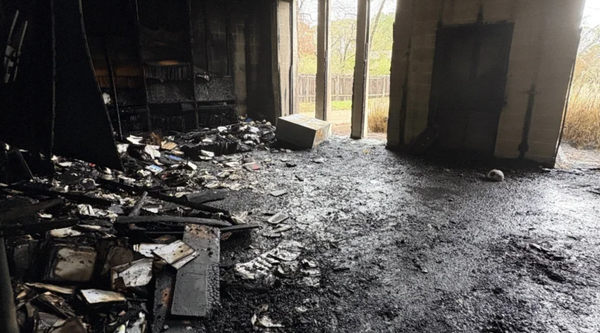
Rishi Sunak has walked the path of life arm in arm with good fortune. He was brought up in a stable home by parents with high aspirations for their children. He was schooled at Winchester, one of England’s most prestigious private establishments, and became head boy there. He graduated from Oxford with a first and was a Fulbright scholar at Stanford. He made money at Goldman Sachs, filled his boots with more moolah at other jobs in finance and married the daughter of a billionaire. When he decided on a career switch into politics, he wasn’t required, as many wannabe parliamentarians are, to demonstrate his commitment by first fighting an unwinnable constituency. He bagged a safe Conservative seat at the first time of asking. He was an MP at the age of 34 and chancellor before he turned 40. And then the wheel of fortune turned against him. He was promoted to Number 10 at the worst point of the political cycle to become prime minister.
I don’t say this to elicit sympathy for the Tory leader. He wanted the job so much he ran for it twice. I am drawing attention to one of his biggest problems, perhaps the largest of the many that confront him. Historical precedent suggests that Mr Sunak is destined to join the sorry club of prime ministers who have been dubbed the “tail-end Charlies”. That label was applied by the late Roy Jenkins, a historian of politics as well as a practitioner of it, to describe the “incredibly strong pattern” of failure among prime ministers coming to office when their party has already been dominant for a long period. Membership includes the Earl of Rosebery (Liberal, 1894-95), Neville Chamberlain (Conservative, 1937-40), Alec Douglas-Home (Conservative, 1963-64), Jim Callaghan (Labour, 1976-79), John Major (Conservative, 1990-97) and Gordon Brown (Labour, 2007-10).
The group includes a Scottish aristocrat, a former trade union official, someone who left school before he was 16 and someone who did a PhD. In terms of their backgrounds, qualities, beliefs and styles, this is a diverse set of characters. They do not have a great deal in common other than that they are all tail-enders. None bar Mr Major won an election and his victory in 1992 was pyrrhic for his party because it was followed five years later by one of the most devastating defeats ever inflicted on the Conservatives. Chamberlain is a variation on the theme because he was not kicked out by the voters. He was removed in 1940 because colleagues judged him inadequate as a war leader.
None of these men were without talents and at least some of them had the potential to be more popular and successful leaders had they arrived in Number 10 at a more propitious time. The same is probably true of Mr Sunak. He’s by no means the most abysmal PM we’ve ever had and a definite improvement on Number 10’s previous tenant and the last but one. But merely being more competent than Liz Truss or Boris Johnson is not saying much. It is certainly not enough to prevail over tail-ender syndrome. Of all the many things he’s embattled by, this may be his most potent foe.
He leads a party that has been in government for so long that it can’t mask its age from the voters nor credibly blame its opponents for the state of the country. Labour had been in power for 13 years when Gordon Brown led the party to defeat in 2010. The Tories had notched up 18 years by the time they were routed under John Major in 1997. Labour had ruled for 11 of the previous 15 years when Jim Callaghan was thrown out in 1979. Alec Douglas-Home’s defeat in 1964 brought down the curtain on 13 years of Conservative rule.
These are anxiety-inducing portents for Mr Sunak who heads a party that is now in its 14th year in office. It shows in the Tory party’s intellectual exhaustion, record of generating scandals, compulsion to scrap with one another and inability to present themselves attractively to the public. At the general election, the Conservatives will be asking Britain to stretch out their rule potentially to more than 19 years. Voters will be entitled to ask: what have you done with all the time you have already been permitted? The Tories will struggle to muster a persuasive answer even on their own terms. It is a great deal easier to compile a compendium of all the national challenges they have failed to address or made more grave than it is to draw up a list of legacies worthy of respect.
You may admire New Labour or despise its time in office, but it had plenty to show for its 13 years in power. The achievements included the establishment of the minimum wage, a parliament for Scotland and a Senedd for Wales, the Good Friday agreement in Northern Ireland, 11 years of uninterrupted economic growth, substantially increased spending on public services and the highest satisfaction ratings for the NHS ever recorded. The results of the span of Tory government, which began in 1979, included a dramatic reduction in trade union power, the right to buy for council tenants, the Big Bang reforms to the City, the transfer of swathes of industries and utilities from the state to the private sector, and victory in the Falklands war. Whether you think that era was terrific for Britain or terrible, no one questions that it was decisively change-making.
The long stretch of Tory rule since 2010 has just one large claim to fame – Brexit. There’s no doubt that departing from the EU has been hugely consequential, but not in a positive way for Britain. Pollsters report a feeling of Bregret among a growing majority of voters and the proportion of the electorate believing it was right to leave has now fallen to less than a third.
Since he became prime minister, Mr Sunak’s big bet has been that he will eventually get some credit for addressing the economic mayhem that he inherited, but that rather relies on people forgetting how much of the mess was of his own party’s creation. Here we find something else he has in common with history’s tail-end prime ministers. The run-up to their ejection from office often featured a severe financial crisis and/or general economic distress. For Jim Callaghan, it was the humiliating IMF bailout followed by the shocking Winter of Discontent. The trauma of Black Wednesday did enormous damage to the credibility of John Major. With Gordon Brown, it was the global financial crisis and the deep recession that followed.
Mr Sunak is presiding over a triple whammy of stubbornly persistent inflation, painfully high interest rates and anaemic growth, which is delivering a savage hit to living standards. Tax as a proportion of GDP is rising towards its highest level since the 1940s at the same time as public services are in awful shape. The prime minister recently expressed the hope that people would feel better off next year. Yet the Office for Budget Responsibility reports that we’re enduring historic falls in real disposable incomes and they will not have returned to their pre-pandemic levels even by 2028. That’s no help to a leader who will have to face the verdict of the country by January 2025 at the very latest.
One of the big decisions Mr Sunak will have to take – and I bet his team are already thinking about this – is when to call the election. Some Tories think their party will be best served by delaying the moment of reckoning to the back half of next year. Other Tories reckon they should ask for the voters’ verdict earlier by going next spring for fear that postponement might not make things brighter for them, but even bleaker.
The lesson of history is that tail-ender prime ministers put off an election for as long as possible in the desperate hope that something might turn up to save them. Jim Callaghan delayed until he was forced to face the country because he lost a confidence vote in the Commons. People who were in the bunker with Gordon Brown during the twilight chapters of his premiership recall endless meetings at which they vainly speculated about what events might come to the rescue of his premiership. He called an election only when he was getting very close to the last possible legal date. Alec Douglas-Home and John Major did the same.
If Rishi Sunak is a typical tail-ender, and that is what he increasingly resembles, expect him to delay an election until he has no choice but to face judgment day.
• Andrew Rawnsley is Chief Political Commentator of the Observer







